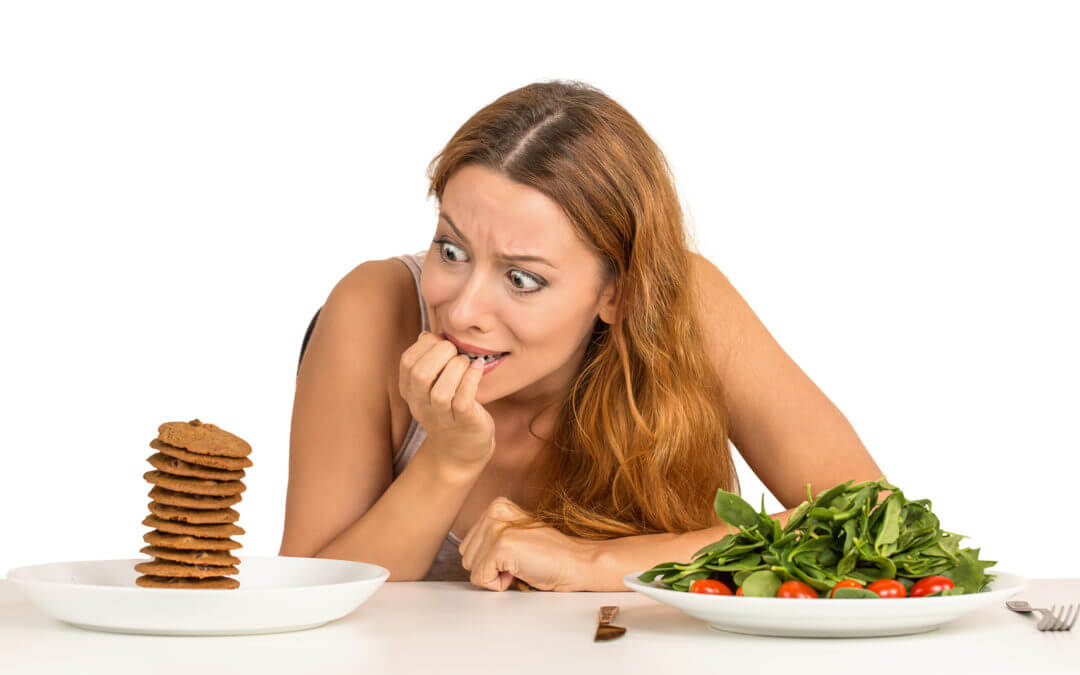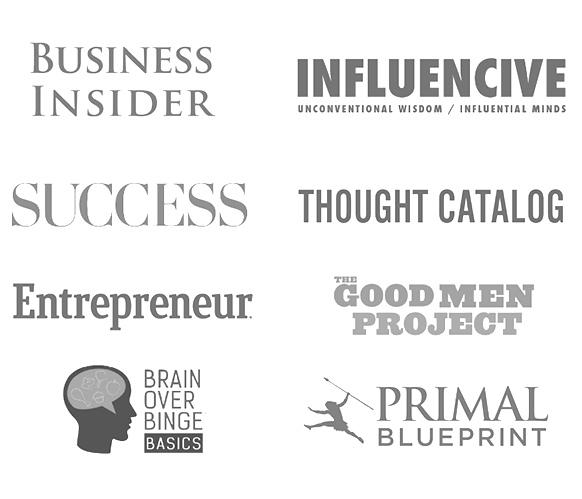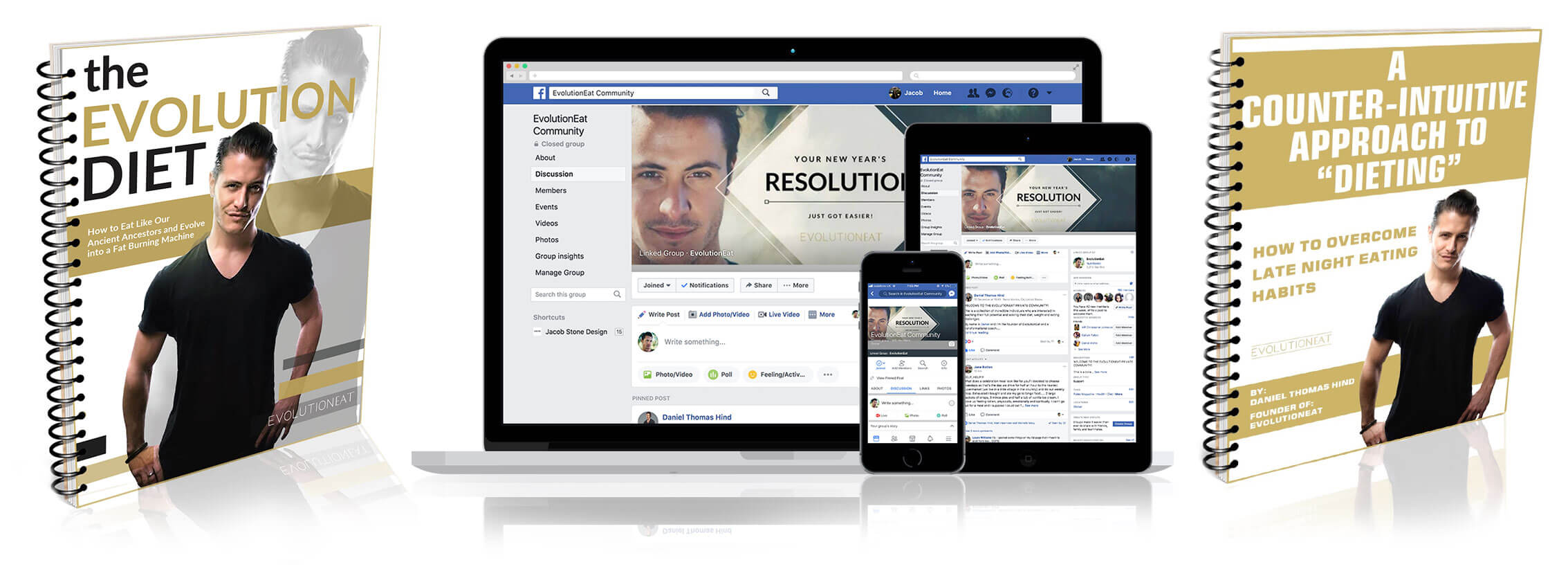I received this question from a reader the other day.
“Hi Daniel, I’m so excited to watch your online course and pray this works. I need your help with my eating. It’s just gotten out of hand. I’ve gained 70 pounds after the birth of my third child and cant get it off…even though I want to get it off, it feels like I don’t really want to. There’s no motivation. Or the motivation is to eat. It’s like the one thing I look forward to at the end of the day. I love ice cream and eating fast food. How can I overcome my emotional eating?”
Thanks so much for your question. I know it’s a tender subject matter so I’ll leave your name anonymous. Here’s my lengthy response. It’s a good one, so please take the time to read it if you struggle with emotional eating (like I do).
Post-Dinner is most people’s vulnerable time, their trigger time. It’s certainly mine. If we’re going to be successful at this food thing, if we’re going to have a healthy and mutually rewarding relationship with food, then we have to learn the meaning of boundaries.
Dinner over? Great. Now let’s go for a walk.
Seriously.
From here on out, no matter what, let’s think of dinner and walking as a paired event. You’re going to commit to taking a walk immediately after you finish eating dinner. The walk does not have to be long. 15 minutes.
Strategy: Remove yourself from kitchen, brush your teeth, put on your running shoes, get the dog’s leash (or pretend you have a dog) and go for a 15 minute walk.
I know as well as anyone how hard nights can be.
For many of us, we have emotional attachments to food—whether or not we know it, whether or not we think of it that way. These are deeply ingrained, and they cause cognitive biases that are VERY hard to detach from.
For example: Do you often feel like eating when you’re bored? How about if you’re stressed, or sad, or lonely? Do you pair food with “relaxation”? Do you often tell yourself that you work hard, therefore you “deserve” this treat or that outlandish meal, etc. etc. ?
Those are all cognitive biases that you now consider to be “truths.” They’re loosely defined operating principles that condition how you treat certain situations. They’re not inherently ‘bad’ or ‘wrong.’ It’s simply that they’re based in your emotions. They generate from a place of vulnerability.
“I deserve it” means that whatever is in front of you (your current set of circumstances) isn’t enough – and therefore you need more.
More of what? More fulfillment? So is that what it is? Is the food fulfilling you? Is it expanding your worldview, pushing you to grow in your business, or create great art, or helping you feel more social or be a better lover?
Food has a place in our lives.
An important place. It’s meant to energize. It’s meant to stabilize. It’s meant to regulate. It’s meant to repair and to heal. It’s also meant to share – it certainly can be social by nature. Often, it’s very meaningful when shared.
Our emotions lead us to connect with food intimately. It’s a pretty intimate experience, if you think about it. You’re handling this delicate thing that literally feeds you life. You put it inside of you. Your body knows how to break it down and derive sustenance and nutrients from it—without ‘you’ having to force anything!
Unless you have a crazy amazing sex life that I definitely want to hear about, it’s basically the most intimate relationship you have!
That’s emotional. How can it not be? If not checked, however, our emotions will lead us to form a dependency on the subject at hand. If it feels good (or tastes good – a precursor to feeling), then we’ll want more of it, especially in light of something unpleasant (stress, exhaustion, boredom, body image concerns, etc.).
Over time, those emotional triggers set up the 3-Step Habit Loop:
- Cue. Researchers have learned that cues can be almost anything, from a visual trigger such as a candy bar to a certain place, or time of day, an emotion, a sequence of thoughts, the anticipation of a reaction, or the company of particular people.
- Reward. Rewards can range from food or drugs that cause physical sensations, to emotional payoffs. When eating gets out of control, we eat to feel better. Having “more” relieves the “bad,” the pain, the emptiness – but only in the short term.
- Routine. The routine is however you go about getting your food. It’s how you go about satisfying your craving for a reward, triggered by experiencing the cue. Routines can be complex, such as waiting until the entire family goes to bed so you can drive to Wendy’s and eat it in the parking lot, or super simple, such as running downstairs to the company snack machine every time you feel stressed out.
Pain Relief.
Relieving pain is a primary motivator that describes many of our actions and thought patterns. Evolutionarily, it makes sense. If we’re in pain it once meant that something was seriously threatening our very existence – better act quick! But now, when the pain has no face, has no body, has no substance, that’s no longer the case.
If we can learn to think about our food choices as influenced by these deep-seated motivations/triggers/drivers, then we can come to understand that relieving pain or dressing up feelings with food isn’t only a misapplication of food’s role in our lives, but is also directly at odds with getting what you ultimately, really want:
Vitality.
Health.
Weight loss.
Power.
Confidence.
Sexiness.
Self-love.
Mastery.
Social vs Private.
We said above that food can be social in nature. Absolutely. But chances are, unless it’s a feast in which the general consensus is one of gluttony (ala, Thanksgiving), I bet you don’t often go nuts with food in front of others. Chances are, you have an intense personal relationship with food, and it largely occurs in private, and it’s gotten to be too much.
That’s why nights, for most of us, are so hard. It’s our “alone” time at the end of the day, when all of those feelings typically present themselves.
Even if all the things in your life are great, this modern culture wears us out. Having a million things coming at us all day long, from the screens to the phones to the demands of others – it’s too much. It’s more stimulation than we were designed to handle all at once. Feeling worn out is a condition of the 21st Century. You’re not weak for feeling it – we all do. Which is why abusing food is so common.
But if you want to stand apart from the crowd, differentiate yourself, and take back control—you have to realize something. And you have to fully embrace it….
Food is only one of many ways to get the reward you’re looking for.
What’s happened is that we’ve conditioned ourselves to form this intense bond with food, and it’s really hard to pull back. But if we look at the situation from a bird’s eye view – there are dozens of applications beyond food that can satisfy the emotional relief you’re craving.
Lonely?
For example, if you’re lonely and you use food as an emotional outlet to displace loneliness: instead of putting all of that energy into food, couldn’t you just as reasonably put that energy into driving to a local social spot to meet new people? It’s just as reasonable, is it not? Wouldn’t it hit on the same centers of relief? Or, far simpler, couldn’t you just call up a friend and talk to them?
Strategy: Go for a walk and call a friend and I promise to god that on the other side of that experience, you’ll feel like a different person. Food will not seem so immediately pressing or demanding of your emotional attention. You’ll have exercised that craving. You’ll have gotten the reward you were seeking, and it was through something other than food. Something you always have access to. How empowering. How inspiring. Remember, you’re always in control. You’re always one choice away from getting there.
Stressed?
If you’re feeling stressed out, your immediate reaction, your entrained habit might be to go to the fridge, even if you’ve just eaten a satisfying dinner. Isn’t it just as reasonable then to train yourself to put on your running shoes and go for a run? Wouldn’t the ultimate reward – stress relief, feeling ‘good’ – be accomplished? Even simpler, and less demanding, isn’t it just as reasonable to go for a walk and play your favorite song? Isn’t it just as reasonable to put on a 20 minute comedy act and crack yourself up? Wouldn’t that satisfy the same reward you’re craving: stress-relief?
Do you see where I’m going with this?
In my personal example, it’s pretty clear what cue was triggering my habit of overeating after dinner: it wasn’t hunger or novelty that I was after, it was satisfying loneliness. I used the excuse of “I need to work more” to think that I needed more food to keep going, to mask the fact that at night I simply felt LONELY!
First, this was strange to me, given that I’m an only child, an entrepreneur, a self-identifying writer, and someone who takes a strange sense of pride in his ability to disassociate from the crowd and do his own thing. I’d never once assumed that I was using food as a means of satisfying my craving for company or social outlet. (Really, what this means was that I needed a girlfriend, but that’s a whole other conversation!)
To repaint the picture: I felt an urge to keep eating once I’d started eating, had unlimited access to my kitchen, and had no other constraints on my night—apart from the construct I’d created that I needed to keep working. What I came to discover was that my urges for food happened between the hours of 7:30-9:00pm.
When I ended up calling a friend or being social in any way, immediately following dinner, I satisfied that internal craving for fulfillment – and I recognized, over time, that I could accomplish that relief with things or activities OTHER than food.
It wasn’t easy at first, but over time, and recruiting my coach to hold me accountable, I made the leap.
Here’s me looking very pissed on one of the first nghts after agreeing to this protocol with my coach.
It was 8pm, after dinner, and I most definitely did NOT want to go for a walk. But I did, and over time, it became easier and easier. In fact, I started to look forward to it. Soon, the craving for food completely disappeared. It had been replaced, totally, by a new habit: going for a walk.
This was one of the biggest “Aha” Moments in my life…I recognized, over time, that I could satisfy my relief with an activity OTHER than eating.
Even though I’ve personally coached people through similar issues in the past, I never fully “got” or connected with all of the elements at play. Until I did. Now I do. That Awareness lasts forever. It’s a higher order of living.
Now I can really help you.
Write me at daniel@evolutioneat.com and share your story. I know it’s incredibly vulnerable but I’m here to help.





